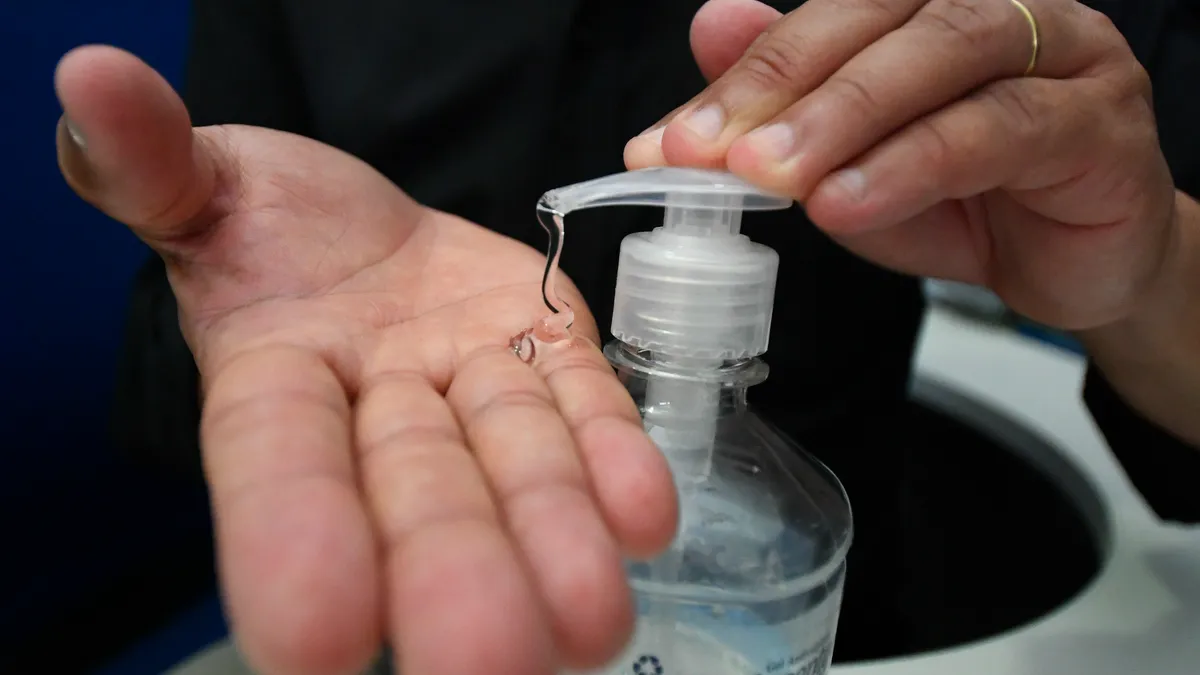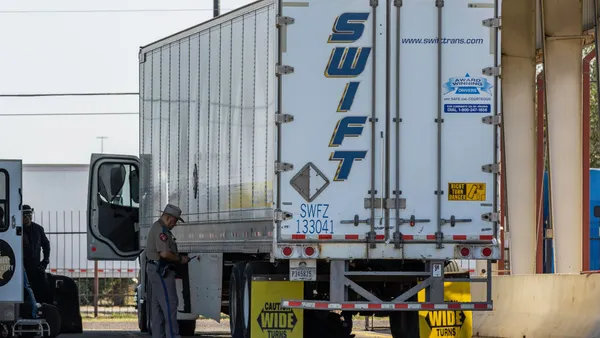Dive Brief:
- Almost one in four U.S. workers is at high risk for serious complications from COVID-19 if infected with the novel coronavirus, according to the Kaiser Family Foundation (KFF).
- The analysis estimated 37.7 million workers, or 24% of employed U.S. adults in 2018, are at high risk, including 10 million who are 65 or older and an additional 27.7 million with pre-existing medical conditions.
- Many in that population are likely working remotely or unemployed following months of economic depression, KFF said, but would be at serious risk if they were to return to sustained in-person work. That could throw a wrench in employers' plans to reopen offices and resume a normal course of operations, as more than half of states report rising COVID-19 infections.
Dive Insight:
The trucking industry has put automated processes in place, but workplaces are resuming in-person operations. KFF data indicates potential challenges for essential workers as states across the country kickstart their economies.
KFF found more than 90 million adults are at higher risk for serious health outcomes from COVID-19 due to underlying health conditions or age. Almost 38 million of that cohort is employed — most of them full time — and likely face financial hardship preventing them from remaining absent from work, if employers want them back.
"These data suggest employers should take into account the higher risk some workers will face, allowing them to work at home where possible, to be tested and to minimize their risks if they return to work," KFF President and CEO Drew Altman said in a statement.
An estimated 12 million more adults who don't work live with the at-risk workers, including 6.5 million people aged 65 and up and roughly 5.5 million at-risk non-elderly adults. KFF said the estimate was conservative, but still highlights how indirect exposure of the virus from working family members is a serious risk.
The estimates are based on KFF's analysis of a national health survey conducted in 2018. High-risk workers are qualified as those having risk factors outlined by the Centers for Disease Control and Prevention (CDC) for worse outcomes from COVID-19, including:
- At least 65 years old
- Diabetes
- Heart disease
- Chronic obstructive pulmonary disease
- Asthma
- Body mass index (BMI) above 40
- Functional limitation related to cancer
Employers in the trucking industry, whose operations don't translate well to virtual work, are looking for ways to manage possible COVID-19 exposure in the workplace, including in-house contact tracers and at-the-door temperature checks.
UnitedHealth Group partnered with Microsoft in mid-May to launch an app aimed at helping employers reopen their workplaces through COVID-19 symptom screening and result notification, though the availability of viable tests is a barrier to widespread testing, including in the workplace.
Roughly two-thirds of Americans think everyone should be tested for the disease before returning to their jobs, according to a Monday survey by healthinsurance.com. But amid pervasive lockdown fatigue and the struggle to make ends meet in a tanking economy, more than half of Americans are comfortable returning to work, according to consumer insights firm Piplsay.














